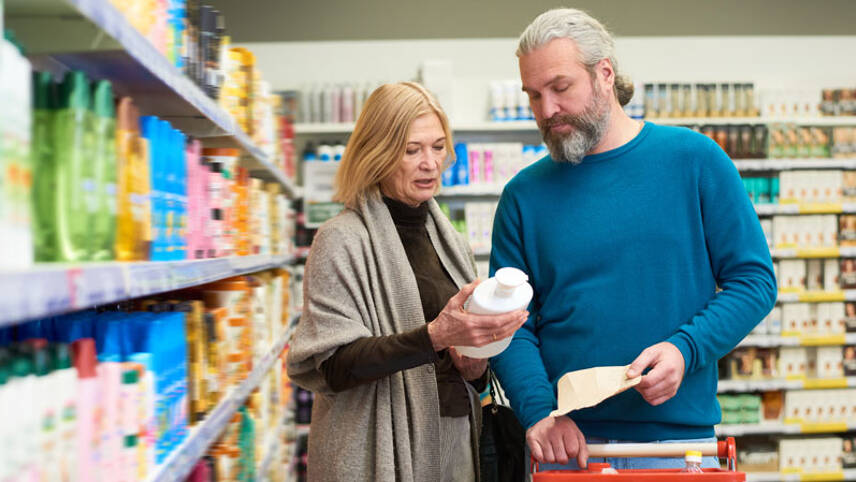Register for free and continue reading
Join our growing army of changemakers and get unlimited access to our premium content

The think-tank has this week published an analysis of the climate transition plans of these two consumer goods brands, alongside Unilever. All three companies have publicly set long-term net-zero targets.
Plant Tracker’s report assesses the scope of emissions reduction targets at the companies and whether they are aligned with the Paris Agreement. It also looks at climate risk analysis processes and factors relating to governance and overall corporate climate strategy.
Planet Tracker concluded that 30% of Colgate-Palmolive’s operating income is at risk due to slow decarbonisation, rising to 51% for P&G. The proportion stood at 14% for Unilever. This is largely due to a lack of preparation for potential carbon pricing mechanisms and other regulatory deterrents in the works for corporate emissions.
With this in mind, Planet Tracker is calling for investors in these consumer goods behemouths to press them for stronger climate-related transition planning and disclosures, which can help to minimise risk in the future.
The analysis alleges that both P&G and Colgate-Palmolive will produce value chain emissions far beyond Paris Agreement alignment. It states that their current pathways are aligned with 3C and will see the businesses generating three times as much emissions as would be permissible in a 1.5C trajectory.
Unilever, meanwhile, is on track to exceed the 1.5C trajectory by a factor of 1.5. Its current alignment is around the 2C trajectory per Planet Tracker’s calculations.
The excess of emissions for these firms is largely concentrated in Scope 3 (indirect) emissions sources. Consumer use of products has a role to play, but the main issue is the upstream supply chain. The report alleges poor reporting of Scope 3 emissions, including the exclusion of some important kinds of Scope 3 emissions from disclosures.
It also urges the businesses to invest more into low-carbon technologies for suppliers, rather than relying on external factors such as the energy transition in the markets where suppliers are based.
“The three featured companies have made limited progress in mitigating upstream Scope 3 emissions historically and have a wide variation in the type of approved Scope 3 targets,” the report states.
Planet Tracker research analyst Ion Visinovschi said: “Our comparison of leading consumer goods companies demonstrates a worrying trend of companies failing to effectively tackle direct Scope 3 emissions, especially upstream, which if not mitigated soon could cost billions of dollars in the future.
“We urge investors to be wary of public initiatives claiming to tackle indirect emissions, which could be linked to substantial emission reductions, as such reductions could come from other actors such as the public grid renewable electrification.”
Business responses
A P&G spokesperson told edie: “P&G changed our reporting scope during the timeframe Planet Tracker used for their model, making it inaccurate. P&G continues to be committed to our climate goals while also working on broader solutions that can also help move the industry forward.”
P&G set a 2040 net-zero target for the whole value chain back in 2021. This built on an existing commitment to carbon-neutral global operations by 2030.
The firm subsequently produced a Climate Transition Action Plan outlining specific goals through to 2040, covering factors such as sustainable sourcing, water use, packaging redesign, freight emissions and renewable electricity. It also sets out P&G’s plan to invest in nature-based solutions to neutralise residual emissions. Additionally, the plan links to climate risk analysis from the company.
A Unilever spokesperson told edie that the firm welcomes Planet Tracker’s analysis, calling it “timely and helpful” as Unilever works on “continual improvements”.
The spokesperson highlighted Unilever’s approach to climate transition action planning, under which the first plan was put to a shareholder vote in 2021. The plan will be updated every three years and the next update is due by the 2024 AGM.
Included in the plan is a top-level commitment to net-zero by 2039 and to invest at least €1bn in climate and nature during this period. Bolstering these commitments are roadmaps to help suppliers measure and reduce emissions and to tackle hard-to-abate parts of Unilever’s own operations such as heating and cooling. Additionally, there is a commitment to improve annual climate risk reporting.
Unilever’s global head of environment Thomas Lingard wrote on LinkedIn: “No one gets full marks from Planet Tracker here – and we know we have more to do, but as we prepare our second plan for the 2024 AGM, this input is helpful and timely as we seek to continually improve our plan.
“Most importantly, we have no interest in being ahead of our competitors here – the challenges we are all facing are mostly systemic – and the more companies commit to bold action, the easier it is to transform the value chains on which we all depend. We will gladly compete for your custom, but we all share the same planet.”
The Colgate-Palmolive Company emphasised to edie that the business is “the only large multinational CPG with an approved target aligned with a 1.5C pathway” by the Science-Based Targets Initiative (SBTi).
They said: “The Planet Tracker report contains significant inaccuracies, including inconsistent use of SBTi boundaries, base years and scopes. The company is proud to be a perennial CDP Climate A-list awardee, remains steadfast in leading on climate action and reports annually on our progress.”
Colgate-Palmolive set a 2040 net-zero target in 2021 under the Climate Pledge initiative, which is co-orchestrated by Amazon. This initiative implores participating companies to report progress annually and not to over-rely on carbon offsetting.
More recently, Colgate-Palmolive launched an updated climate transition and net-zero action plan after having new emissions goals approved in line with 1.5C by the Science-Based Targets Initiative (SBTi).


Please login or Register to leave a comment.